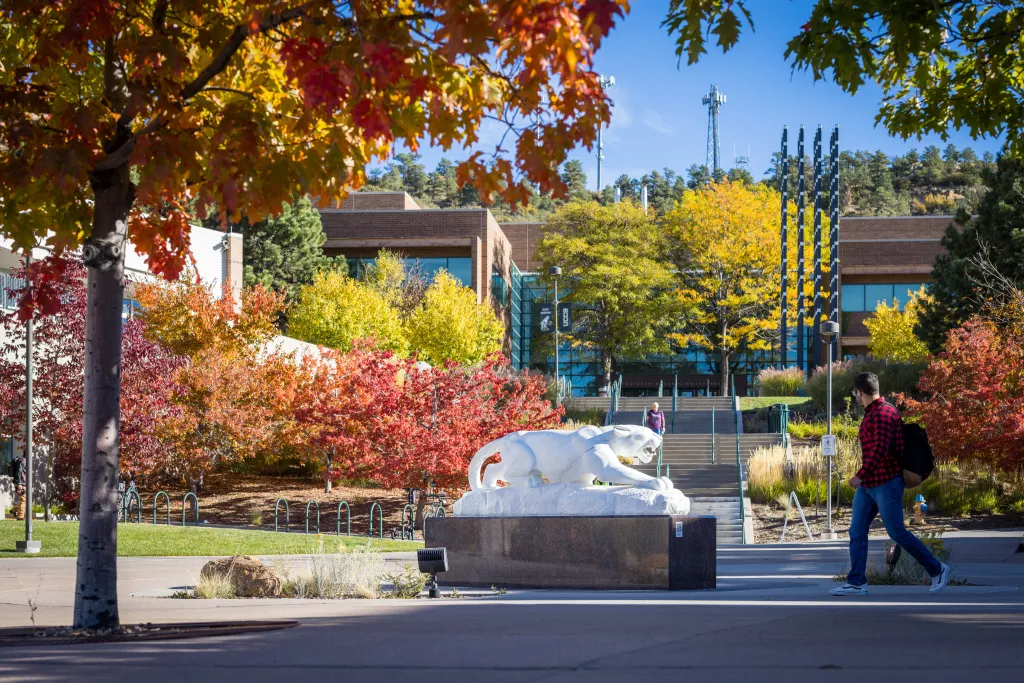
Applying to Law School
How to Apply
To apply to law school, you need (at least) the following:
- An undergraduate degree (to be completed before beginning law school. So, you could apply in the fall or early spring of your senior year to start law school that fall). Functionally, you’ll need to be able to supply an undergraduate transcript, with your actual or expected date of graduation, in order to apply to law school.
- An LSAT score (the LSAT is the standardized test that most law schools use for admissions—much like the SAT or ACT is used for undergraduate admissions). The LSAT is administered throughout the year at various locations around the country. It is scored on a scale of 120-180. The average score is about 150, but to get into a top law school, you’ll want as high a score as possible. The LSAT, much like other standardized tests, can be prepared for; UCCS regularly receives the option of discounted Kaplan LSAT courses for its students. One of the best preparations for the LSAT is PHIL 1120 (Critical Thinking).
- Letters of Recommendation (at least two, and sometimes 3 or 4, depending on the law school/s to which you apply). Letters of recommendation are endorsements from people who can speak to your skills, abilities, past track record, and prospects for success in law school and beyond. For current students, they should be from professors with whom you’ve taken multiple classes, or with whom you’ve developed a good working relationship. If you are writing or have written an honors thesis, one letter should be from your thesis advisor. For past students, letters from bosses and colleagues are equally valuable, so long as they speak to your ability to do well in law school.
- Personal Statement (this is where you tell your story, and showcase your writing skills). Some law schools will ask you to answer particular questions, while others will simply request a personal statement. In this statement, you want to say a) why you want to go to law school in general, and why you want to go to the particular law school to which you’re applying, and b) why the law school in question should accept you. What particular skills, talents, abilities, accomplishments, and experiences do you bring to the table? Tailor your statement to each law school, in order to demonstrate to the admissions committee why you’re a perfect match for them.
- UCCS Career Services (https://career.uccs.edu/) is also available to assist with personal statements. You can email careers@uccs.edu to set up an appointment any time.
This is a partial list: particular law schools may require other elements as well. However, if you’ve got these elements, you’re on your way to applying to law school.
Law schools vary widely in terms of admissions deadlines; so, you’ll want to research various law schools, and pay close attention to their admissions deadlines, so that you don’t miss any important dates. Ideally, you will submit your law school applications in the late fall of your senior year.
In addition, you’ll want to register for LSAC’s Credential Assembly Service (CAS), which will collate all of your materials and send them out to the law schools to which you decide to apply. Most American Bar Association-approved law schools require applicants to use CAS.
Rough timeline for applying to law school:
- May - August: prepare to take the LSAT (either take a course or do self-study). Take several practice tests!
- August - December: take the LSAT. Give yourself enough time so that you can take it again during the admissions cycle if necessary.
- End of August - beginning of October: law school applications become available, for admissions for the following fall. Research the schools to which you want to apply and determine when their applications become available.
- August - September: ask 3 people for letters of recommendation. At least 2 should be academic - ideally, one is your senior thesis/capstone advisor, and one is a professor with whom you’ve worked closely. Give them at least 1.5 months lead-time.
- September - November: write and edit personal statement, getting comments and feedback from advisors so that it is as polished as possible.
- November - January: once your application package is ready, go ahead and apply. Most law schools do rolling admissions, so it is better to apply early rather than later. That being said, take the time to create a fully polished application package - the extra polish is worth a few weeks' delay!
- January - April: hear back from law schools to which you’ve applied. Make a decision, and either matriculate in the fall (ideal!) or begin the next round of applications.
Finally, a word about finances:
Applying to law school is expensive; going to law school, even more so. Contact admissions at the schools to which you’re considering applying—many of them may be able to discount or even waive their admissions fee. Seek out scholarships and financial aid, and consider carefully before taking on student loans to attend law school. If you’d like to talk over your options, please get in touch with the Director of the Center for Legal Studies.
There are fee waivers available for LSAC programs and services, including LSAT fees. The availability of the fee waivers are based on federal poverty guidelines. For more information, please see the following website: https://www.lsac.org/lsat/register-lsat/lsat-cas-fees/fee-waivers-lsac-programs-and-services